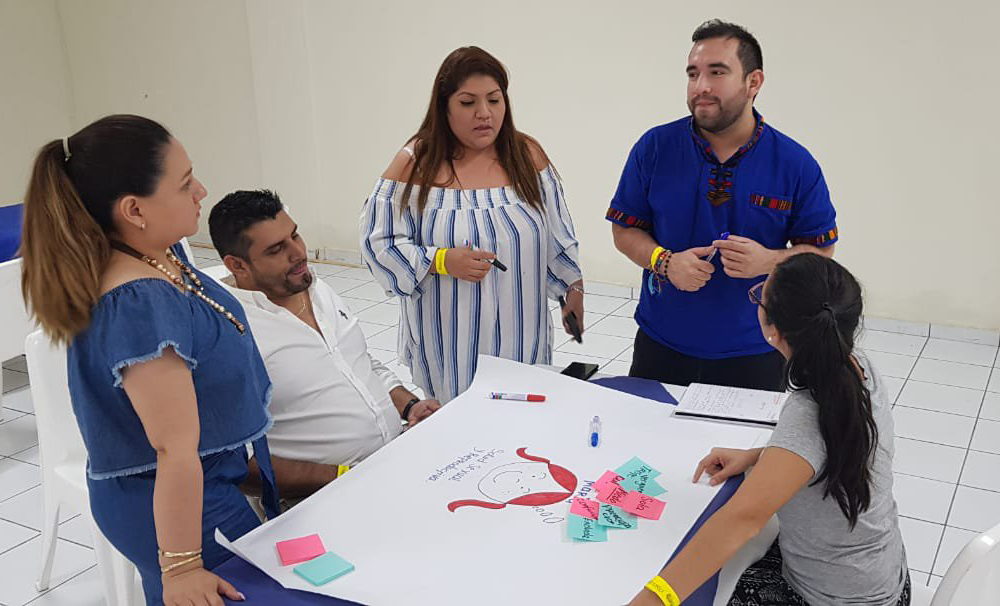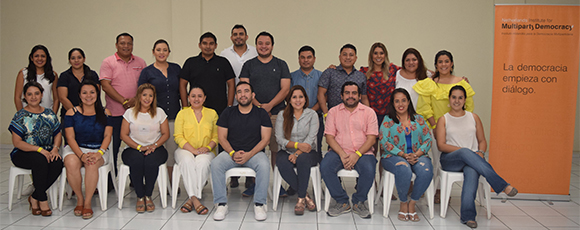Dialogue for the future: Bringing together young parliamentarians in El Salvador

NIMD El Salvador has held its first reflection and training meeting for young parliamentarians from the Legislative Assembly. The event took place on 26-28 July, with the participation of the United Nations Population Fund (UNFPA).
The reflection and training meeting brought together young parliamentarians from all political parties with representation in the Youth Parliamentary Group (YPG) of the Legislative Assembly.
As the first multiparty space for young parliamentarians in El Salvador, the meeting allowed the participants to engage and establish connections through dialogue, reflect on the current political context, and contemplate their work. In addition, the meeting aimed to strengthen the capacities of the young legislators in different thematic areas.
Throughout the three days, the young parliamentarians received training on issues facing El Salvador’s youth, such as young people’s view of politics and political parties; data (delivered by UNFPA) on adolescent pregnancy and demographic dividend; public-sector innovation; and how to contribute to society.

At the end of the meeting, the parliamentarians of the YPG formed working groups to continue their collaboration in a multiparty setting. The multiparty teams will work together to implement the YPG’s consensus agenda for 2019-2021. They will address issues such as youth entrepreneurship, sexual and reproductive education, youth political participation, sports, youth reintegration and missing persons.
NIMD El Salvador will support the implementation of the consensus agenda and facilitate monthly meetings with multiparty participation from the YPG.
One of NIMD’s main priorities is supporting the political inclusion of women and young people. By creating this multiparty space, we hope to help the young parliamentarians make and enforce decisions which emphasise the inclusion of women and youth in decision-making spaces. We hope that, in the long run, this lead to the creation of public policies which favour these population groups.
